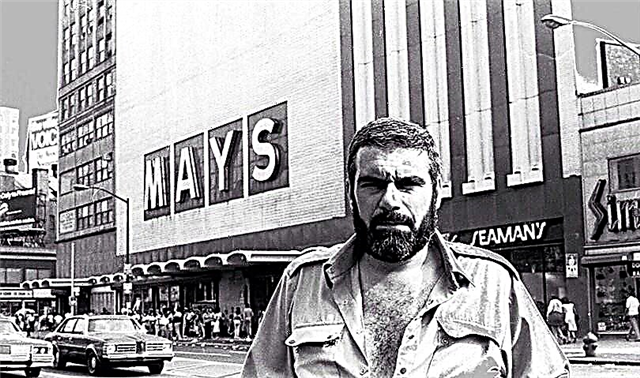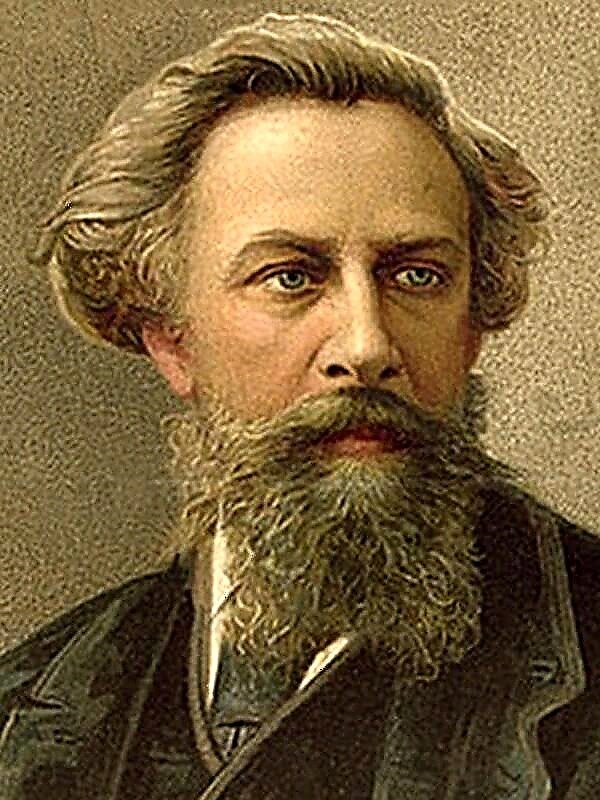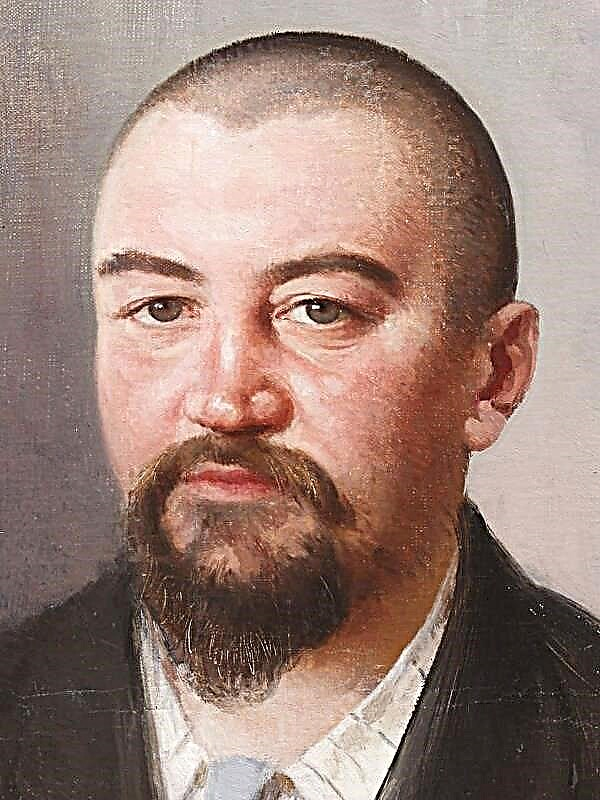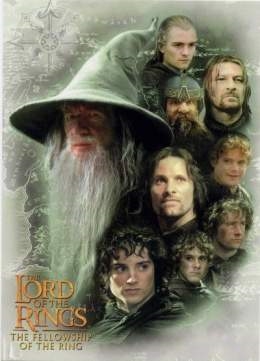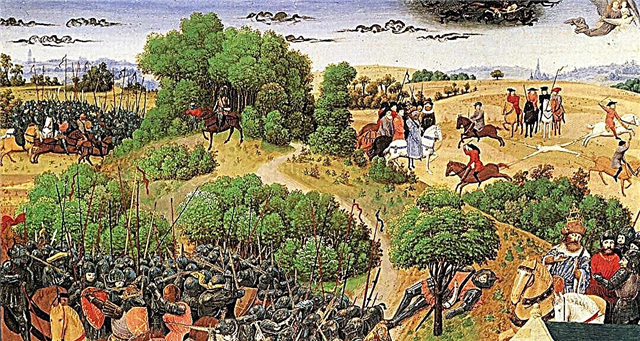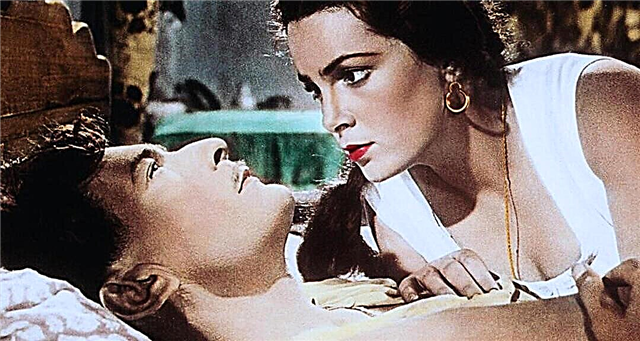The play is based on genuine historical events - an unsuccessful campaign of Portuguese troops in Africa under the command of the Infants Fernando and Enrique, who tried in vain to storm the city of Tangier in 1437.
King Fez wants to recapture the city of Ceutu from the Portuguese. Prince Taroudant promises to send ten thousand mounts to his aid if the king gives his daughter Phoenix for him. The princess does not dare to argue with her father, but in her heart she is against marriage with Taroudant, for she loves the Moorish commander Muley. Father hands her a portrait of a prince. At this time, Muley appears, who, by order of the king, sailed for reconnaissance at Ceuta. At sea, he noticed a fleet from Lisbon, which was heading to Tangier under the command of the brothers of the Portuguese king, Princes Enrique and Fernando. Don Enrique is the master of the Order of Avis, and don Fernando - the Order of Christ (religious and chivalric orders created to fight the "infidels"). Mulei urges the king to prepare for the defense of Tangier and punish the enemies with “the terrible whip of Mohammed”, so that the predictions of the soothsayers would come true that “the crown of the Portuguese will be Africa’s grave.” King Fez gathers troops, and Muley orders to take cavalry and attack the enemy.
The mule is reproached by the Phoenix before the battle for having a portrait of Taroudant. He believes that the princess cheated on him. Phoenix replies that she is not guilty of anything, she had to submit to her father’s will. He demands to give a portrait.
Don Fernando and don Enrique with troops land ashore near Tangier. They want to take over the city and establish the Christian faith in Africa. However, Don Enrique sees evil signs in everything, “an ominous seal of misfortune” - either a solar eclipse, or a “fleet scattering a cyclone across the sea”, then he himself stumbled, stepping on the land of Africa. He wonders "in the blood the whole horizon, night birds above his head during the day, and above the earth ... - around the tomb." Don Fernando, on the contrary, sees good omens in everything, however, no matter what happens, he is ready to thank God for everything, for God's judgment is always fair.
The battle begins, during which Don Fernando captures Mulei, who fell from a horse. Don Fernando notices that the Moor is terribly saddened, but not by the fact that he was captured. The prince asks him about the cause of the tribulation. Mulei is struck by the nobility of the enemy and his participation in the grief of others. He talks about his unhappy love, and the prince lets him go to the bride. Mulei swears that he will not forget about such a blessing.
The Moors surround the Portuguese, and Don Fernando calls in the name of Christ to fight or die.
Brito, a buffoon from the retinue of Prince Fernando, trying to save his life on the battlefield, pretends to be dead.
Fernando and his retinue surrender, King Fez is ready to save the captive and release him if the Portuguese give Ceutus. Prince Enrique goes to Lisbon to the king.
On an empty battlefield, two Moors see Brito lying and want to drown his body so that it does not become a breeding ground for the plague. Brito jumps up, and the Moors run away in horror.
Phoenix tells Muley what happened to her during the hunt: she either met at the stream in the forest, or dreamed of an old woman, "a ghost, a ghost, delirium, a dark-skinned, dried skeleton." Toothless mouth whispered mysterious words, full of meanings, but so far incomprehensible - "pay you to be exchange, ransom for the dead." Phoenix is afraid that rock is gravitating over her, that she will face a terrible fate "to be a bargaining chip at the cost of someone's death on earth." Mulei interprets this dream in his own way, thinking that we are talking about his death as the only salvation from suffering and adversity.
Fernando, on a walk, meets Christian slaves and encourages them, urges them to endure blows of fate steadily, for this is Christian wisdom: since this lot is sent from above, “there is a goodness in him. Fate is not forever in the same position. News and change and the king are waiting for the slave. "
King Fez appears, and together with Prince Fernando they see a Portuguese galley floating in black cloth approaching the shore. Don Enrique descends ashore in mourning robes and reports the sad news that the king, having learned about the capture of Fernando, died of grief. In the will, he ordered in return for the prince to give the Moors to Ceut. The new king Alphonse approved this decision. However, Prince Fernando indignantly rejects such an offer and says that "it is unimaginable that the sovereign Christian Moors surrender the city without a fight." Ceuta is the "center of piety, the citadel of Catholicism," and it cannot be given to the reproach of "infidels," because they will turn "chapels into stalls, in the altars they will build a manger", in the temples they will make mosques. It will be a shame for all Christians, the descendants will begin to say that “Christians drove out God” in order to clean the room for evil demons to please. Residents of Ceuta, in order to preserve wealth, will change faith and accept Islam. The life of one person, even a prince, says Fernando, is not worth such sacrifices. He is ready to remain in slavery so as not to sacrifice so many innocent people. The prince rips open the king’s letter and is ready to live in prison with the slaves. And so that in Ceuta they illuminate the temple in the name of the Immaculate Conception of the Most Holy Theotokos, the Prince is ready to give his life to the last drop of blood.
King Fetz is furious at the prince’s response and threatens him with all the horrors of slavery: “With all the people in front of your brother, you’ll be slapping my legs in front of me before me.” Fernando is happy to endure everything as God's will. The king declares that the slave must give everything to the lord and obey him in everything, which means that don Fernando must give it to King Ceut. However, the prince replies that, firstly, Ceuta is not his, but “divine,” and secondly, that “heaven teaches obedience only in a just cause.” If the master wants the slave to "do evil," then the slave is "powerful not to obey the order." The king orders to put the fetters on the prince’s legs and neck and keep him on black bread and sea water and send him to the stable to clean the royal horses. Don Enrique vows to return with the troops to free the prince from shame.
During hard labor, slaves from the retinue of Prince Fernando try to surround him with care and help him, but he refuses this and says that everyone is equal in slavery and humiliation.
Phoenix on a walk meets Prince Fernando and is surprised to ask why he is in such rags. He replies that such are the laws that tell slaves to live in poverty. Phoenix objects to him - because in the morning the prince and king were friends and don Fernando lived in captivity in a royal way. The prince replies that “such is the land’s order”: in the morning roses bloom, and by evening their petals “found the grave in the cradle”, so human life is changeable and short-lived. He offers the princess a bouquet of flowers, but she refuses them - by the colors, like by the stars, you can read the future, and it scares the Phoenix, because everyone is subject to "death and fate" - "our destinies are buildings without supports." “Our life and growth” depends on the stars.
Moulay invites the prince to arrange an escape, for he remembers that Fernando gave him freedom on the battlefield. To bribe the guards, he gives Fernando money and says that a ship will be waiting for the prisoners in the appointed place. King Fez from a distance notices the prince and Mulea together and begins to suspect them of conspiracy. He orders Muley to guard the captive day and night, in order to keep an eye on both of them. Mulei does not know what to do - betray the king or remain ungrateful to the prince. Fernando answers him that honor and duty are higher than friendship and love, he is ready to guard himself so as not to endanger his friend, and if someone else offers him to run away, Fernando will refuse. He believes that, apparently, “it is so pleasing to God that in slavery and captivity” he remains a “staunch prince”.
Muley comes to the king with a report on how the prince-slave lives: his life has become hell, the sight of him is miserable, he stinks from the prisoner so that when he meets him people scatter; he sits by the road on a heap of dung, like a beggar, his companions beg for alms, since prison food is too scarce. “The prince with one foot in the grave, Fernando’s song is short-lived,” says Mulei. Princess Phoenix asks her father for mercy to the prince. But the king replies that Fernando himself chose such a fate, no one forced him to live in the dungeon, and only in his power to hand over Ceuta in the form of a ransom - then the prince’s fate will immediately change.
King Fez arrives with an envoy from the Portuguese king Alfonso and the Moroccan prince Taroudant. They approach the throne and at the same time begin their every speech. Then they start arguing to whom to speak first. The king grants such a right to the guest, and the Portuguese envoy offers Fernando as much gold as two cities can cost. If the king refuses, then the Portuguese troops will come to the land of the Moors with fire and a sword. Taroudant in the messenger recognizes the Portuguese King Alfons himself and is ready to fight with him. King Fez forbids the fight, for both are visiting him, and the Portuguese king responds the same as before: he will give the prince in exchange for Ceuta.
Taroudant wants to take his bride Phoenix with him, the king does not mind, for he wants to strengthen the military alliance with the prince against the Portuguese. The king instructs Muley with the soldiers to guard Phoenix and deliver her to the groom, who goes to the troops.
Slaves take Prince Fernando out of prison, he sees the sun and the blue sky above him and wonders how great the world is, he rejoices that the light of Christ is above him, he sees God's grace in all the hardships of fate. King Fez passes by and, turning to the prince, asks what drives him - modesty or pride? Fernando replies that he offers his soul and body as a sacrifice to God, he wants to die for faith, no matter how fast he is, how much he suffers torment, whatever rags he carries, whatever heaps of mud he serves as a dwelling place, in faith he its not broken. The king can triumph over the prince, but not over his faith.
Fernando feels death is approaching and asks him to put on his monk’s robe and bury him, and then someday they will move the coffin to their homeland and build a chapel over Fernando’s grave, because he deserved it.
On the seashore, far from Fez, King Alphonse landed with his troops, he is about to unexpectedly attack the Tarudanta in the mountain gorge, which accompanies his bride Phoenix in Morocco. Don Enrique discourages him because the sun has set and night has come. However, the king decides to attack in the darkness. Fernando’s shadow appears in the mantle, with a torch, and calls the king to battle for the triumph of the Christian faith.
King Fez learns about the death of Prince Fernando and claims that he received a fair punishment for not wanting to give Ceut, death will not save him from harsh punishment, because the king forbids the burial of the prince - “let him stand unburied to passers-by for fear ".
The shadow of Don Fernando with a burning torch appears at the fortress wall, on which King Fez ascended, and King Alphonse and the Portuguese soldiers leading Taroudant, Phoenix and Mulea, who were captured. The shadow of Fernando orders Alphonse at the walls of Fez to negotiate the release of the prince.
Alphonse shows King Fez captives and offers to exchange them for a prince. The king is desperate, he cannot fulfill the condition of the Portuguese king, since Prince Fernando has already died. However, Alphonse says that dead Fernando means no less than living, and he is ready to give "for the corpse of soulless painted beauty" - Phoenix. So the fortuneteller’s prediction comes true. In memory of the friendship between Mulei and Prince Fernando, King Alphonse asks to give Phoenix as his wife to Mulea. The coffin with the body of Fernando to the sound of pipes carried to the ship.


